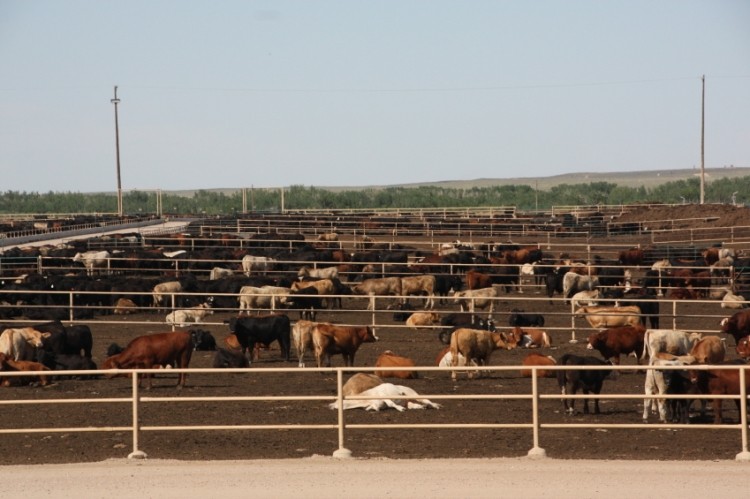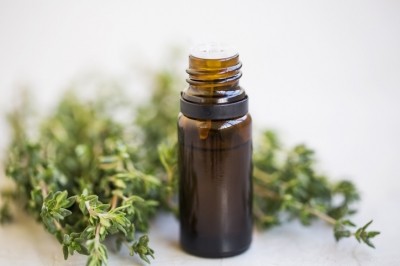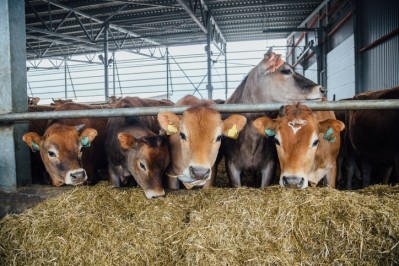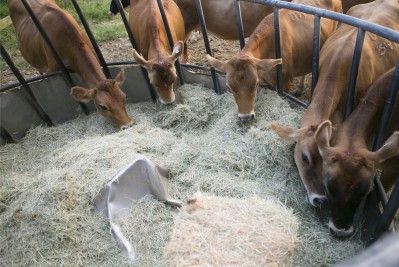Beef production improved with essential oils in cattle diets

A team of international researchers from Spain and Brazil examined the use of an essential oil blend in the diet of beef cattle. The group published their results in the journal of Meat Science.
“The aim of this study was to investigate the effect of different doses of an essential oil blend on meat quality: chemical composition, color, water holding capacity, texture, lipid oxidation and fatty acid composition of the Longissimus thoracis muscle of intensively reared young bulls throughout aging (1, 7 and 14 days),” said the researchers.
The group found that using the oil blend had positive effects on beef quality in terms of water holding capacity, texture and lipid oxidation, said team members.
“A dose of 3.5 g/animal/day could be recommended in feedlot animals, but greater doses could have a pro-oxidant effect,” they said.
Why essential oils?
Beef production in Brazil was traditionally pasture- or grazing-based, said the researchers. But, that production system has been changing to a more intensive practice to supply increased domestic and export demand.
In the move toward a feedlot system, feeds with greater energy and more concentrate are being used, they said. However, more antibiotics also have been part of the shift to an intensive production system to prevent disease, metabolic disorders and to boost feed efficiency.
Antibiotic usage has been increasingly questioned and some products are no longer allowed to be used for beef exported to the EU, they said. Plant extracts are gaining interest and seen as offering a safe alternative.
Multiple studies have explored the use of essential oils as additives in livestock feed to boost feed efficiency or animal production as they have antimicrobial, anti-inflammatory, antioxidant or digestive modulatory effects, said the researchers. “Their antimicrobial activity can decrease ruminal bio-hydrogenation and consequently increase the deposition of PUFA in meat,” they added.
Essential oils from different plants have been shown to have effects. Like, for example oregano and thyme are known to increase antioxidant potential as they contain phenolic terpenes, they said. When blending plant oils it is possible to create a synergistic effect that may alter beef quality.
But, little examination has been done on the influence essential oil use in feed may have on meat quality, they said. The goal of the study was to add to that body of knowledge.
Trial details
In the study, a group of 27 year old beef cattle were given one of three finishing diets for a period of four months, said the researchers. The basal diet included concentrate and sugarcane bagasse pellets.
Supplemental oils were added at 0 (E0), 3.5 (E3.5) or 7 (E7)g/animal/day of a commercially available essential oil blend comprised of oregano, garlic, lemon, rosemary, thyme, eucalyptus and sweet orange.
Pellets were checked for dry matter (DM) content, organic matter, neutral detergent fiber, acid detergent fiber and nitrogen, they said.
Cattle were harvested at the end of the feeding period and the longissimus thoracis was collected for analysis, they said. The muscle was tested for fatty acid profile, meat color, chemical composition and the effects of aging on water retention, texture and lipid oxidation.
Steaks were frozen, thawed, refrigerated and cooked to establish thawing losses and cooking losses, said the researchers.
Results
Overall, adding the essential oil blend to the diet did not alter pH, chemical and fatty acid composition, meat color or water retention and texture, said the researchers. But, it did influence oxidation and color.
A dose of 3.5g/animal/day was recommended for feedlot use in beef production and 7g/animal/day was thought to have some pro-oxidant effects as it boosted lipid oxidation, water loss and lowered redness, they said.
The redness value was greatest for the cows getting the E3.5 diet, they said. Ageing did alter thawing losses and texture for the E7 diet.
Adding 3.5g/day lowered lipid oxidation, said the researchers. And, adding 7g/animal/day produced a pro-oxidant effect during ageing leading to higher values for lipid oxidation at day 14 of ageing.
“The addition of 3.5g/day of essential oils in the diet seems to be more favorable than 7g/day, based on the smaller results for lipid oxidation at 0 and 14 days of aging,” they said. “Lipid oxidation increased with aging due to all treatments; however, at 14 days those variations were higher.”
Supplemental essential oils did not influence meat texture or the amounts of saturated fatty acids, monounsaturated, polyunsaturated (PUFAs), n-3 fatty acids or n-6 fatty acids, they said.
Source: Meat Science
Title: Effect of essential oils on meat and fat qualities of crossbred young bulls finished in feedlots
DOI: http://dx.doi.org/10.1016/j.meatsci.2016.06.017
Authors: Dayane Rivaroli, Ana Guerrero, Maribel Valero, Fernando Zawadzki, Carlos Eiras, Maria del Mar Campo, Carlos Sañudo, André Jorge, Ivanor Nunes do Prado















